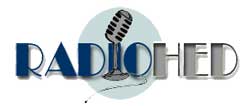 I do it regularly without thinking it’s an actual principle for writing effective commercials. But it is.
I do it regularly without thinking it’s an actual principle for writing effective commercials. But it is.
Simple.
My writing process varies, but it’s often a variation of the following steps:
I immerse myself in the client brief, which can be a multi-page white paper, video, web site, notes scratched on the back of an envelope, email, or phone call. Sometimes I get to talk to the client. Sometimes not.
I think about the client’s existing and potential customers. I get some ideas, make some notes. Ninety percent of my creation at this point is garbage. Sometimes I start writing a script immediately.
Often, I leave it and do something else, for minutes, hours, even days if I’m lucky to have the time.
I return to the project with a starting idea. I write without thinking, analyzing, or editing. I just write non-stop - lots of words, rambling sentences, pages. Some of it on computer, some of it on paper.
Then I edit – hack is a more accurate term. I hack it into a semblance of a commercial. At this point it’s far from ready, or unique, or effective.
What I want is a way to make it real. By that I mean, make it sound believable, the way people talk instead of a pitch in “commercialese.” Looking at the script is not the best way for me to accomplish this goal.
I put away what I’ve written – the edited script with all the selling points and clever phrases, and call to action. With the gist of the concept in my head, I record a version of the commercial. No script, no notes, I just try to tell the story from memory. This synopsis will sound more natural, more real than my written spot, but it probably won’t have all the points I needed to make.
Listening back to the recording while looking at my edited script, I make changes, cut sentences off, add pauses, add punctuation, emphases…in other words make it more like a conversation, even if it’s one voice speaking to a potential customer.
The ad-libbed recording has shown me how to make the written message sound real. This process works especially well for dialogue commercials, which can easily come off as stilted.
Try this process of writing/editing/recording/re-editing on your scripts. It’s fairly quick and darned effective. You talk to yourself anyway. Why not use it to improve results for your clients?
Jeffrey Hedquist talks to himself and encourage you to do the same.
© 1997-2018 Hedquist Productions, Inc. All rights reserved.
